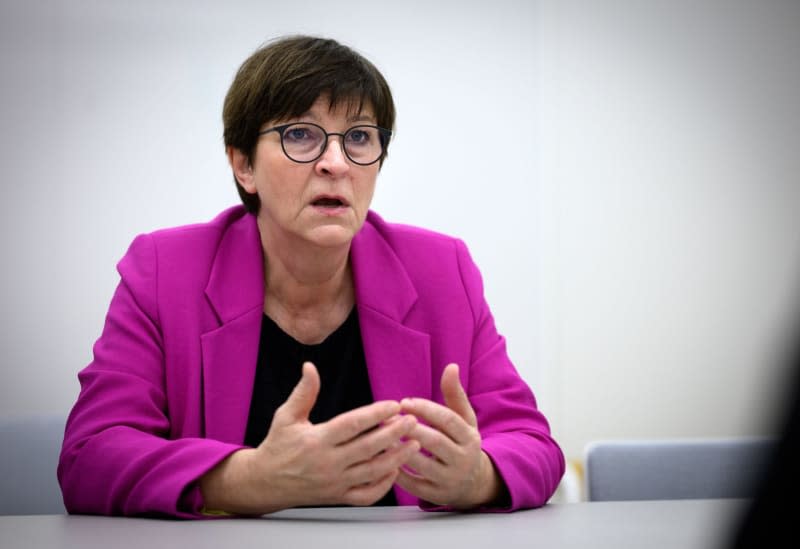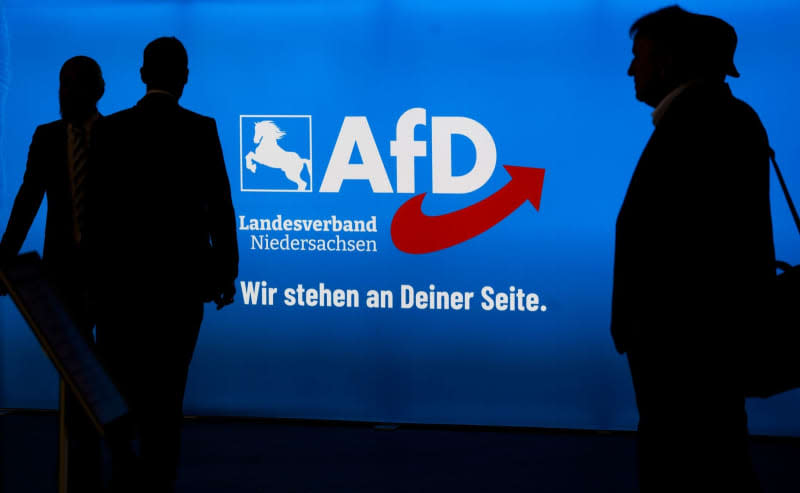German far-right AfD sees membership grow as SPD suggests party ban

Germany's far-right AfD was boosted on Tuesday by its own figures showing membership had risen while an opinion poll indicated a surge in support, as a rival party is thinking about banning it.
Regional elections will be held in three eastern German states in September - Saxony, Thuringia and Brandenburg. The Alternative for Germany (AfD) is leading in the polls in all three states and tradtional parties are aghast.
Many critics in Germany compare the AfD to the Nazi party which led the country into World War II and perpetrated the Holocaust.
But the AfD says it is a democratic party which is mirroring the worries of a population fed up with the status quo of German politics. It is also capitalizing, as many other populist parties worldwide are, on immigration fears.
The party said its membership currently stands at 40,131, around 37% higher than at the end of 2022. Back then it had 29,296 members and other parties represented in the Bundestag had significantly more.
Opinion polls suggest up to 23% of Germans would vote for the AfD if federal elections were held now. This would make it the second strongest party - behind the current conservative opposition - for the first time. The conservatives consist of the Christian Democratic Union (CDU) and its sister party, the Bavarian Christian Social Union (CSU) parties.
In a Tuesday opinion poll just for the Saxony state elections, the AfD is now ahead of the CDU.
The survey conducted by the opinion research institute Civey and the Saxony newspaper, Sächsische Zeitung, showed the AfD at 37% compared to the CDU's 33%. A month ago, the two parties were neck and neck.
The Social Democratic Party (SPD) of German Chancellor Olaf Scholz is now at just 3% and is in danger of not making it into the Saxon state parliament, since a 5% minimum is needed.
The pro-business Free Democratic Party (FDP), which is also in the federal government's coalition, is now at 1%.
The Greens, who are also in the ruling federal coalition, are at 7% and the Left Party is at 8% in a state which counts Leipzig and Dresden as its biggest cities.
With such a result in just under nine months, forming a government in Saxony would be extremely difficult.
All other parties have ruled out a coalition with the AfD. An alliance between the CDU, Greens and Left would still be possible - but the CDU has also banned cooperation with the Left Party.
The pollsters asked 3,004 people: "Who would you vote for if state elections were held in Saxony next Sunday?"
The survey was conducted online between December 18 and January 1. The results have a margin of error of 2.9%.
With the AfD also surging in Thuringia and Brandenburg, it cannot be ruled out that it will win an absolute majority of seats in at least one of the states and be able to appoint a state premier.
This would be a major political development in Germany, which has managed to shed its Nazi past to become one of the world's most respected democracies and an economic powerhouse.
Several of the states which made up East Germany have gone from being under far-left Communist rule to supporting a far-right party in just 33 years since reunification. The East is still far less prosperous than the West and frustration with the traditional parties has grown.
But the Federal Office for the Protection of the Constitution, Germany's domestic intelligence agency, categorizes the AfD as a suspected right-wing extremist party.
The party's state associations in Saxony, Thuringia and Saxony-Anhalt have already been categorized as confirmed right-wing extremist.
Despite the AfD's strong polling, banning the party remains an option for the leader of Germany's left of centre SPD, Saskia Esken, co-chairwoman of the party.
"Such a party ban is rightly subject to high hurdles. But I am convinced that we should keep reviewing it," Esken told dpa. "It is important that we talk about banning the AfD and that voters are shaken up."
Esken, who nominally leads Scholz's party although he would have a final say, reckons the AfD is part of an extreme right-wing network, maintains lists of critical journalists and sets up reporting portals for teachers who criticize the party.
"It uses every topic to incite people. For me, that is clearly anti-democratic," Esken said.
All other major parties at a federal level have said they would not go into coalition with the AfD. The next national elections are due in October 2025.


